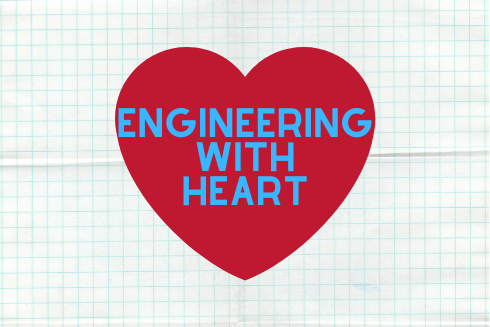“Engineering With Heart” is a series of articles by Michael Paddock for ASCE News.
Paddock, P.E., M.ASCE, a 30-year member of ASCE, is a licensed civil engineer and surveyor. His professional career was spent managing teams of over 100 engineers designing infrastructure projects over $1 billion, and he was the youngest-ever recipient of Wisconsin’s “Engineer of the Year” award.
After a near-death cancer experience, he was motivated to begin a pro bono engineering career that has delivered projects with Engineers Without Borders USA, Rotary, Bridges to Prosperity and other nonprofits on five continents over the last 20 years.
 In today’s Member Voices article, Paddock marvels at ASCE’s Future World Vision and considers one part of the world where civil engineers’ work toward the future is already helping today.
In today’s Member Voices article, Paddock marvels at ASCE’s Future World Vision and considers one part of the world where civil engineers’ work toward the future is already helping today.
Looking through the 3-D goggles at the three-dimensional model of a floating city, I was amazed.
I couldn’t help but be in awe of how communities will live, work and play in the world of enhanced infrastructure depicted by the ASCE Future World Vision proof-of-concept I experienced at the ASCE 2019 Convention in Miami.
As a civil engineer and ASCE member for over 30 years, I am proud that ASCE will not only help the profession adapt to the future but will take an active role in shaping the world’s direction.
It’s a great time to be a civil engineer and a member of ASCE!
But then I think of Hannah, whom I’d met only a few days earlier in Ghana.
A water vendor in a rural village, Hannah sells safe water at the community tap stand to those who come and fetch it in five-gallon containers for the going rate, a penny a gallon. She receives 20 percent of her sales as a commission.

Safe Water Network, a nonprofit organization, designed and built the water station, which pumps raw water from a well to a station, where it is treated and chlorinated under the watchful eye of its operator before the safe water is sent to Hannah’s tap stand. Safe Water Network now operates the facility without subsidy to ensure its sustainability.
Hannah prides herself on her job and its impact.
Two years ago her community didn’t have access to safe drinking water; they just fetched contaminated water from a stream. She was fully aware of the dangers of the contaminated water to her community’s health and was thankful for the improvement.
At 96, she explained to me that the job was perfect for her. She is no longer able to do physical work and her grown children have left the area.

PHOTO: Judy Haselhoef
“I stay connected to the news of the neighborhood when everyone comes to my tap for water. My job is important,” she beamed. “It gives me money to support myself and my life purpose. I love what I do.”
The next day, I visited another community as part of the Engineers Without Borders USA (EWB-USA) team that technically assists Safe Water Network. That area uses the next-generation water scheme, in which technology improves efficiency, enhances reliability and ensures quality.
An automated water station allows people to receive water anytime of the day by using a prepaid card. Customers transfer money and add water credit by using a cell phone and mobile money. The cashless system – simple, reliable and efficient – passes savings to its consumers, offering important economic relief to the 2.4 million Ghanaians who still live on less than $2 a day.
However, that scheme doesn’t use water vendors to sell water. If Safe Water Network used it in Hannah’s area, she would be out of a job.
Back at the ASCE Convention, I thought about the future. It provides not only exciting opportunities for us as civil engineers but also some challenges. Civil engineering centers on people – solving problems that help protect the health, safety and welfare of the public, including society’s most vulnerable. Throughout history, civil engineers have helped society adapt to new technology, such as the transportation transformation from stagecoach to railroad to highways.
As we develop this new Future World Vision, we civil engineers will be challenged to find solutions that benefit everyone during times of change. But I know we are up to the challenge.



Civil Engineering, at its best, provided beautiful solutions that meet the needs of mankind. Infrastructure is not just important, it’s vital to support the seven-plus billion people on the earth!